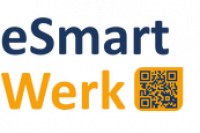Current Projects
Multimedia Opinion Mining (MOM)This project aims to address the challenge of opinion mining of multimedia content from the web. This comprises a large-scale multi-modal analysis of social media streams and their underlying network dynamics considering different media channels such as Twitter, Flickr, YouTube, Google, and Wikipedia. The main contribution of MOM is four-fold: First, social media data is analyzed utilizing information from structured data sources to detect and track trending topics. Second, large amounts of multimedia content are analyzed with respect to its sentiment and opinion. This follows a holistic approach i.e. the analysis of a rich set of different modalities such as textual, visual, and tempo-visual content. Third, this information is further enriched by network analysis to grasp structural diffusion as well as global and local impact of information in social networks. And finally, fourth, the possibility of forecasting the progression of identified opinion topics into the near future is investigated. |
HySociaTeaHySociaTea is short for Hybrid Social Teams for Long-Term Collaboration in Cyber-Physical Systems. In this project, funded by the German Ministry for Education and Research, we investigate how teams of humans, robots and software agents (i.e. virtual characters and softbots) can work collaboratively in a production scenario. Many large-scale real-world problems, such as effective disaster response, the careful dismantling of contaminated structures or the efficient manufacturing and construction of complex artifacts, require the coordination of such teams of humans, robots, and software agents to accomplish the collection of challenging tasks. It is well known that more can be achieved through teamwork in a shorter timeframe and at a higher quality than by individual performance. Our vision of effective hybrid social teams of humans, robots and software agents working together seamlessly in dynamic cyber-physical environments can only be achieved by combining the research excellence and experience of all relevant DFKI research departments of all three main sites (Bremen, Kaiserslautern, Saarbrücken) in a joint effort. HySociaTea is thus a collaborative grand challenge project, which combines the diverse DFKI competencies in a wide spectrum of subfields of AI to address a fundamental research goal in the area of intelligent interacting agents. |
eSmartWerkComputer-aided design, electronic documentation, and highly complex machines and tools: similar to other lines of business, deployment of IT is on the rise in construction. The highly heterogenous composition of the work force with regards to education, cultural background, and age creates an increasingly challenging environment for the deployment of new technology. Funded by the German Ministry for Education and Research (BMBF) and VDI/VDE Innovation + Technik GmbH, the goal of the eSmartWerk project is to create novel user interfaces that are tailored to the particular requirements found on construction sites. These interfaces need to be usable by workers independent of education, cultural background, and age. To achieve this ambitious goal, a unique combination of eye tracking, wearable and environmental sensors is to be designed and implemented, that reliably detects human activities and attention. Based on the obtained information, a context-sensitive interface provides assistance only when it is desired by the worker. |
Partially Involved Projects
KALLIMACHOS
Kallimachos leads social scientists, computer scientists, digital-humanities-specialists and librarians together to form a regional digital humanities center and thus integrates existing cooperation, competencies and institutions of the University of Würzburg. The center, with its focus on digital edition and quantitative analysis, provides a technical and social infrastructure to support the humanities in responding to research questions on the basis of preparation and quantitative evaluation of editions and text collections. The technical foundation for this is the development of relevant components that can be integrated into existing infrastructures at the center. In addition to the establishment of prototypical work flows.
|
Selected Completed Projects
MOONVIDUsers world-wide collect more images and videos before than ever in history on the web, leading to an enormous growth of web-based content sharing platforms such as Flickr and YouTube. The goal of MOONVID is to employ this information for visual learning, leading to much more scalable and flexible multimedia retrieval systems. MOONVID is funded by the German Research Foundation (DFG), and is jointly conducted by MADM and the IUPR Research Group at the University of Kaiserslautern. |
iCOP
The iCOP project is targeted at fighting child pornography in P2P networks. iCOP brings together international experts on online child safety technologies and law enforcement practitioners to develop a forensic toolkit that supports police investigators of child sexual abuse with the identification of illegal image and video material and its originators. In the project, we develop multimedia analysis technology that automatically identifies previously unknown child abuse content and matches it to reference datasets maintained by the police.
iCOP is funded through the EU Safer Internet Program.
|
TAViAnThe goal of this research project is to investigate the use of automatic video annotation for targeting ads associated with web-based video content. We exploit the context of a video clip to improve annotation accuracy, and investigate automatic tag vocabulary selection to identify concepts of particular interest to certain user groups. TAViAn is sponsored by Google's faculty research award program.
|
FIVESFIVES brings together partners from law-enforcement, academia and industry to enhance the state of the art for tools available to law enforcement in the area of child sexual abuse investigation. FIVES is a targeted project within the Safer Internet Program sponsored by the European Union. |
OCRopusOCRopus™ is a state-of-the-art document analysis and OCR system, featuring pluggable layout analysis, pluggable character recognition, statistical natural language modeling, and multi-lingual capabilities. The system has been initialy developed in our group with generous sponsoring by Google. Since summer 2009 OCRopus™ is mainly developed by the Image Understanding and Pattern Recognition group at the University of Kaiserslautern. |















